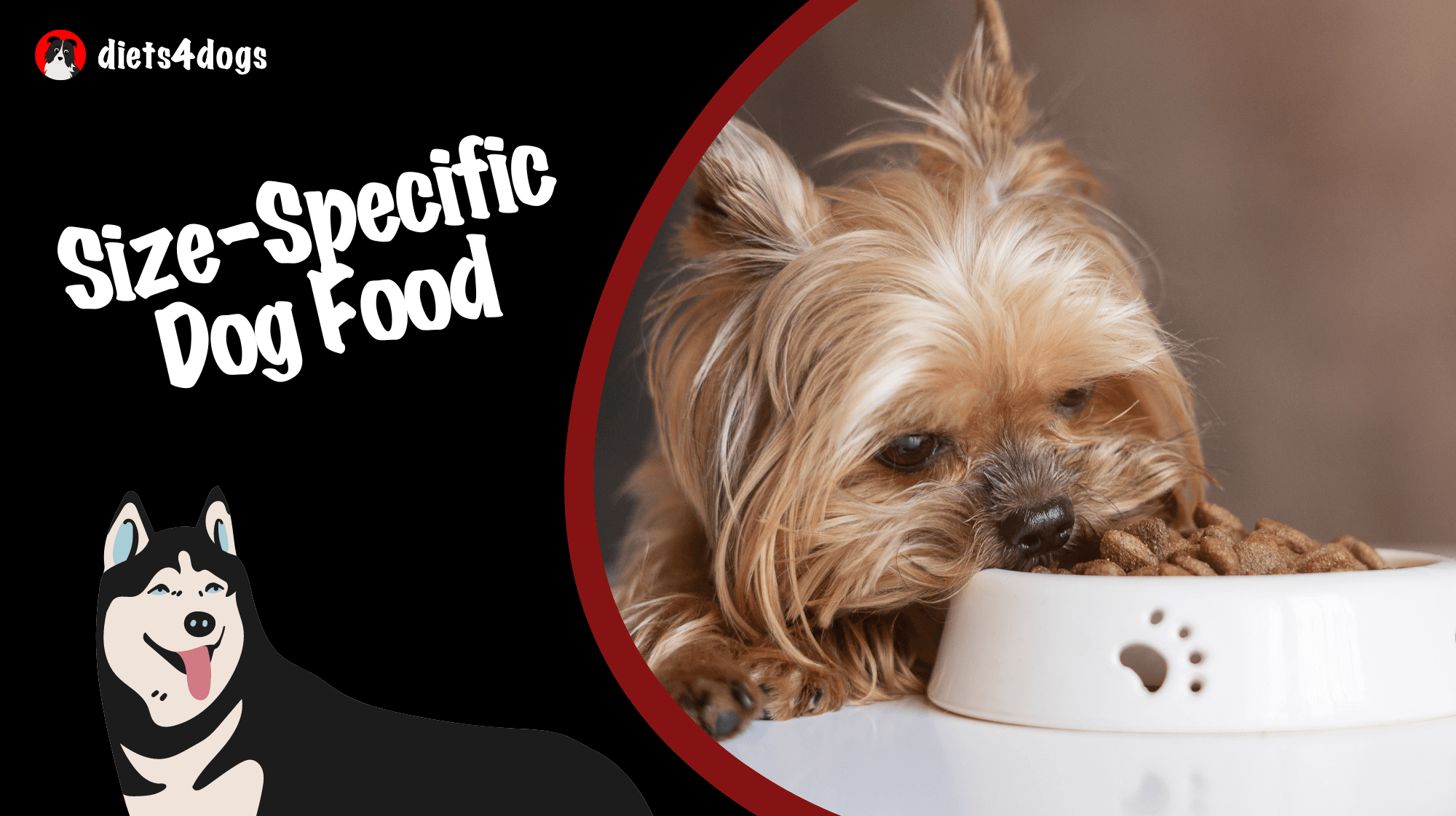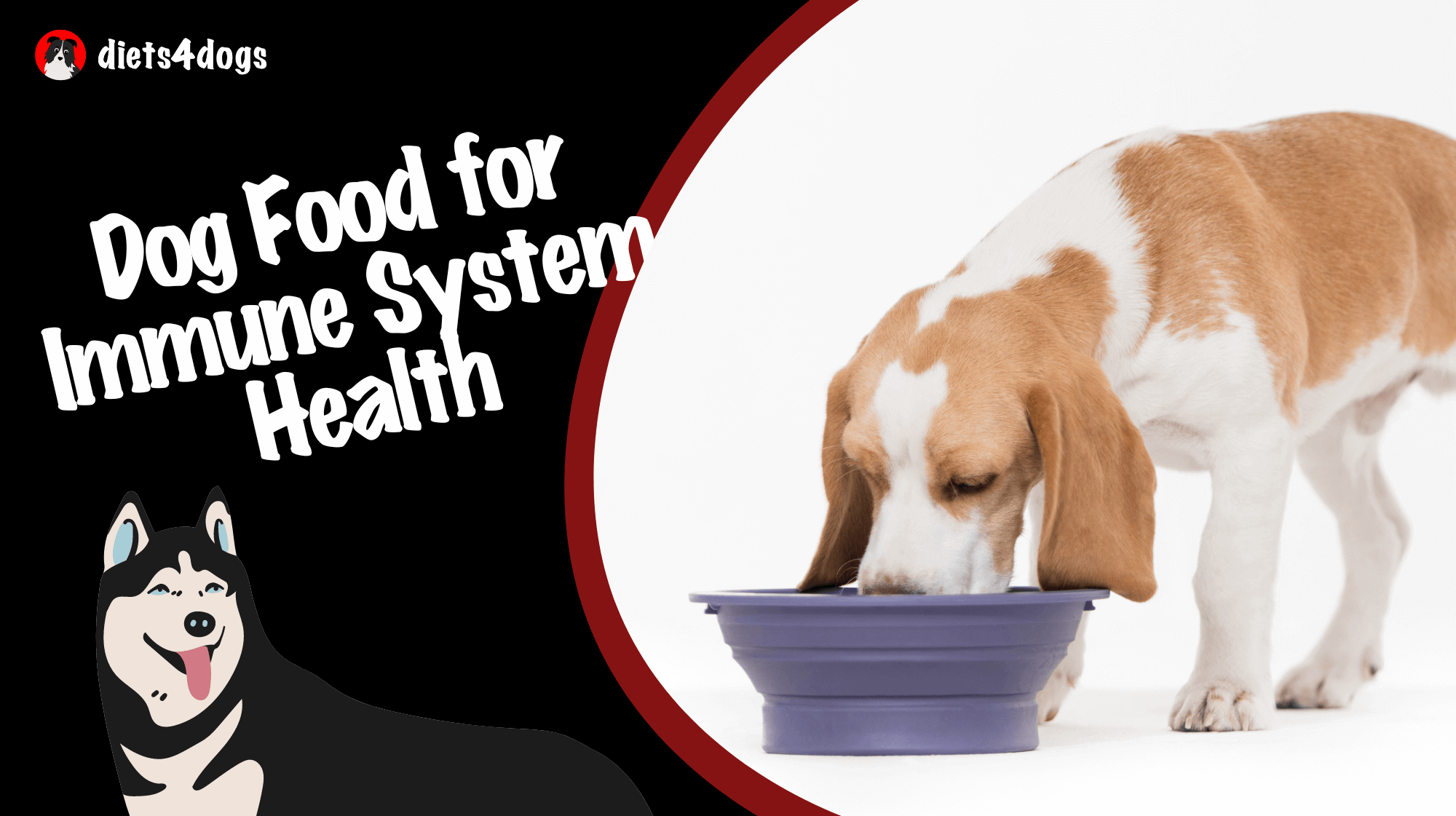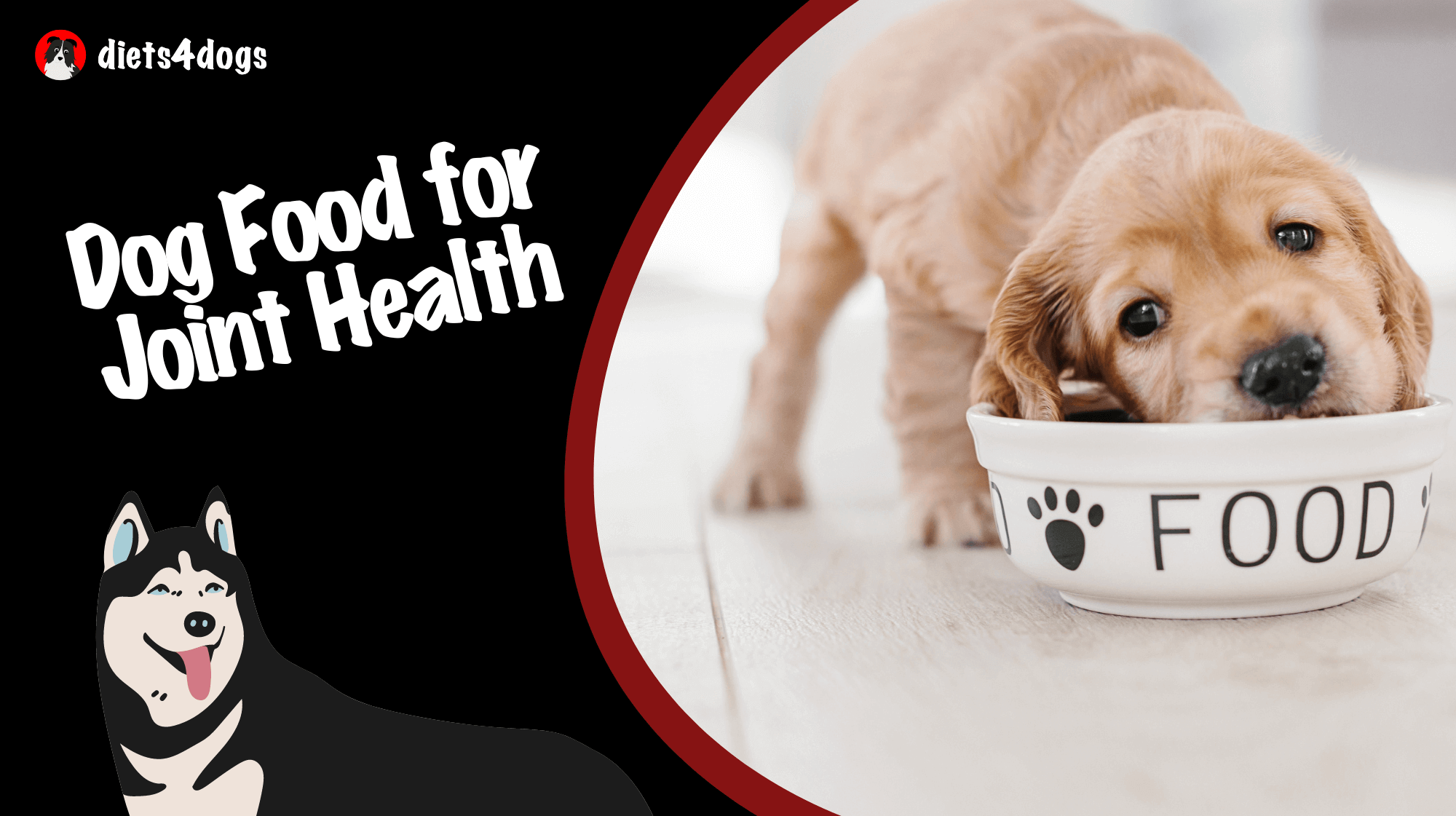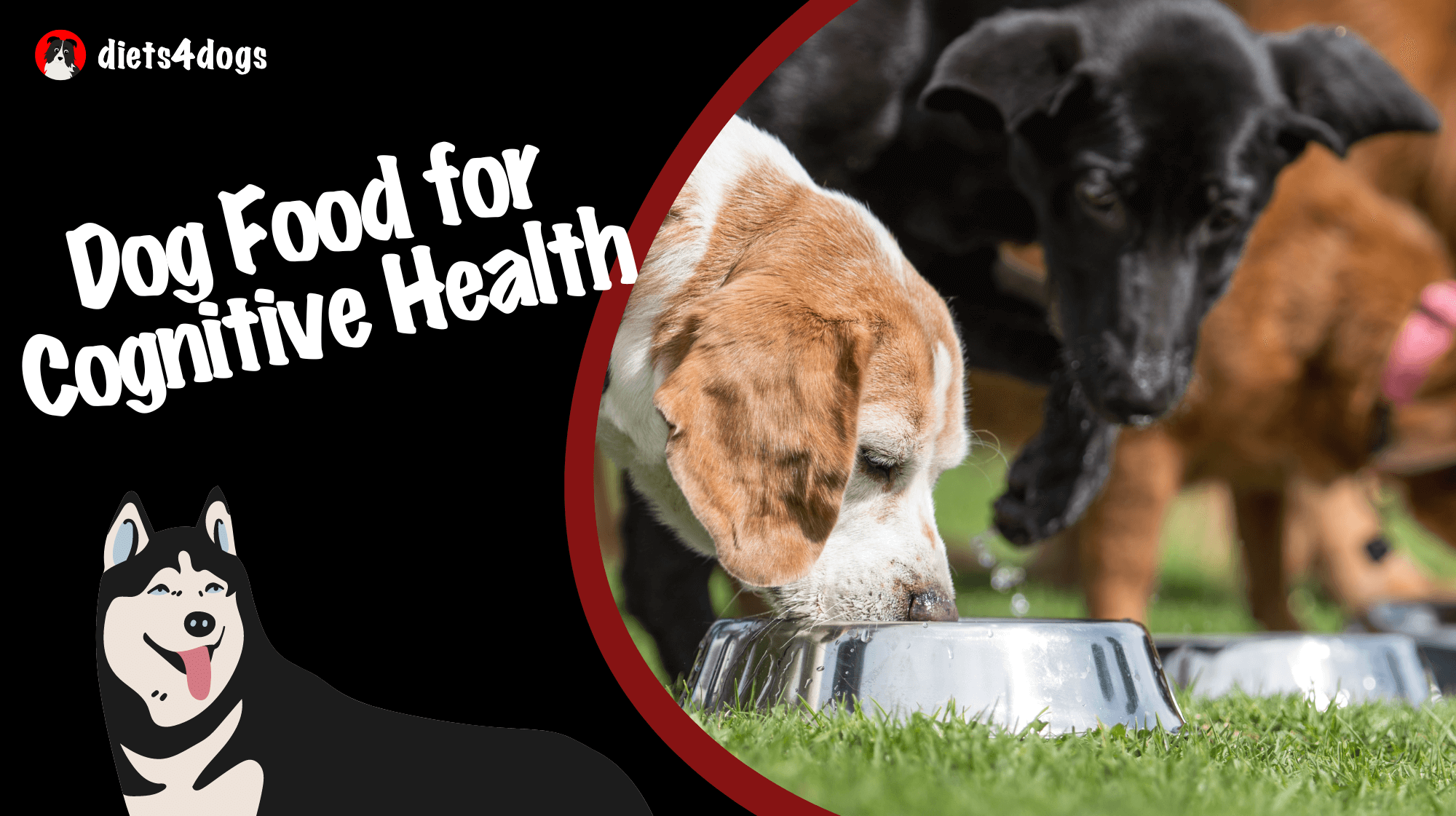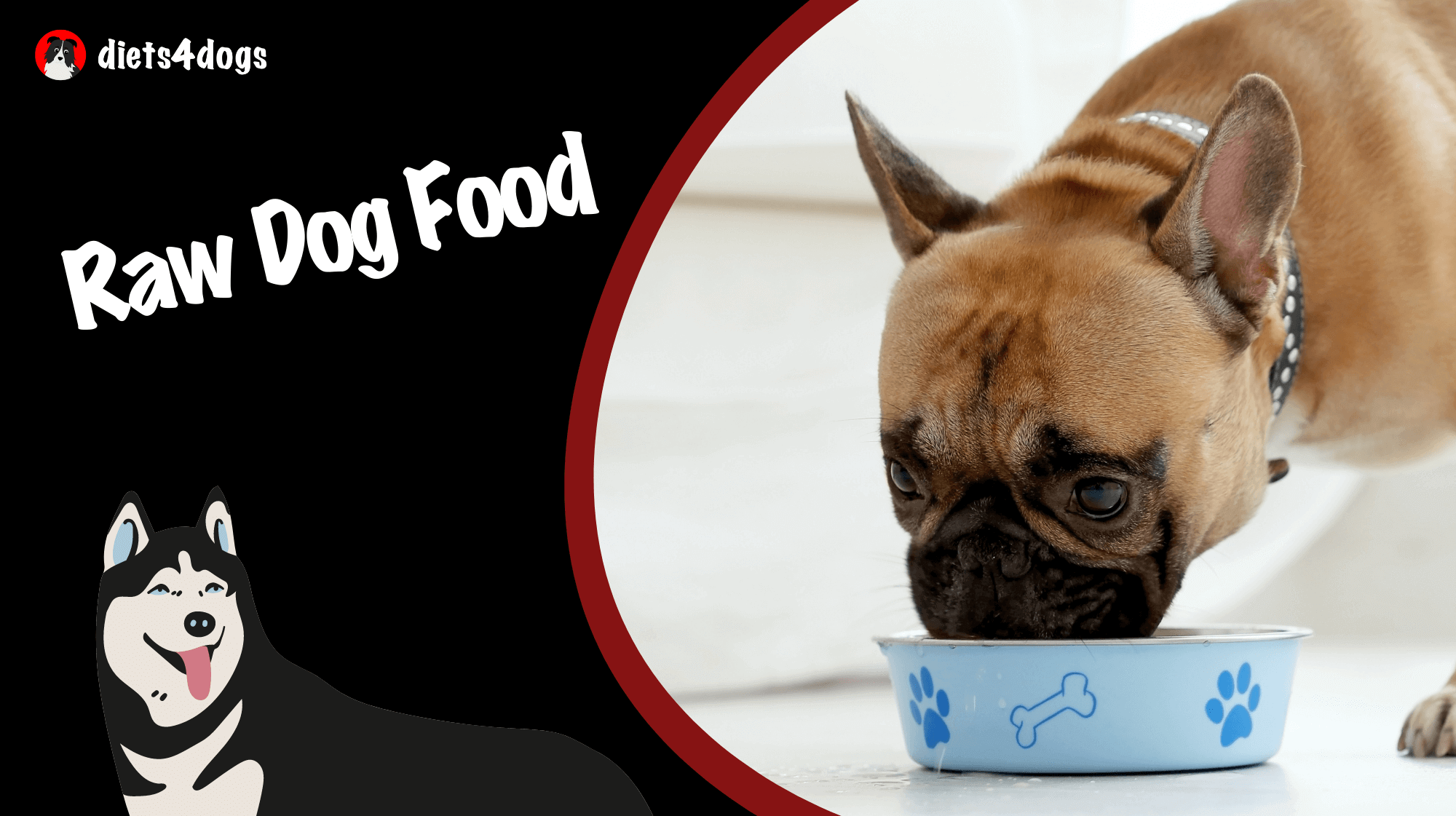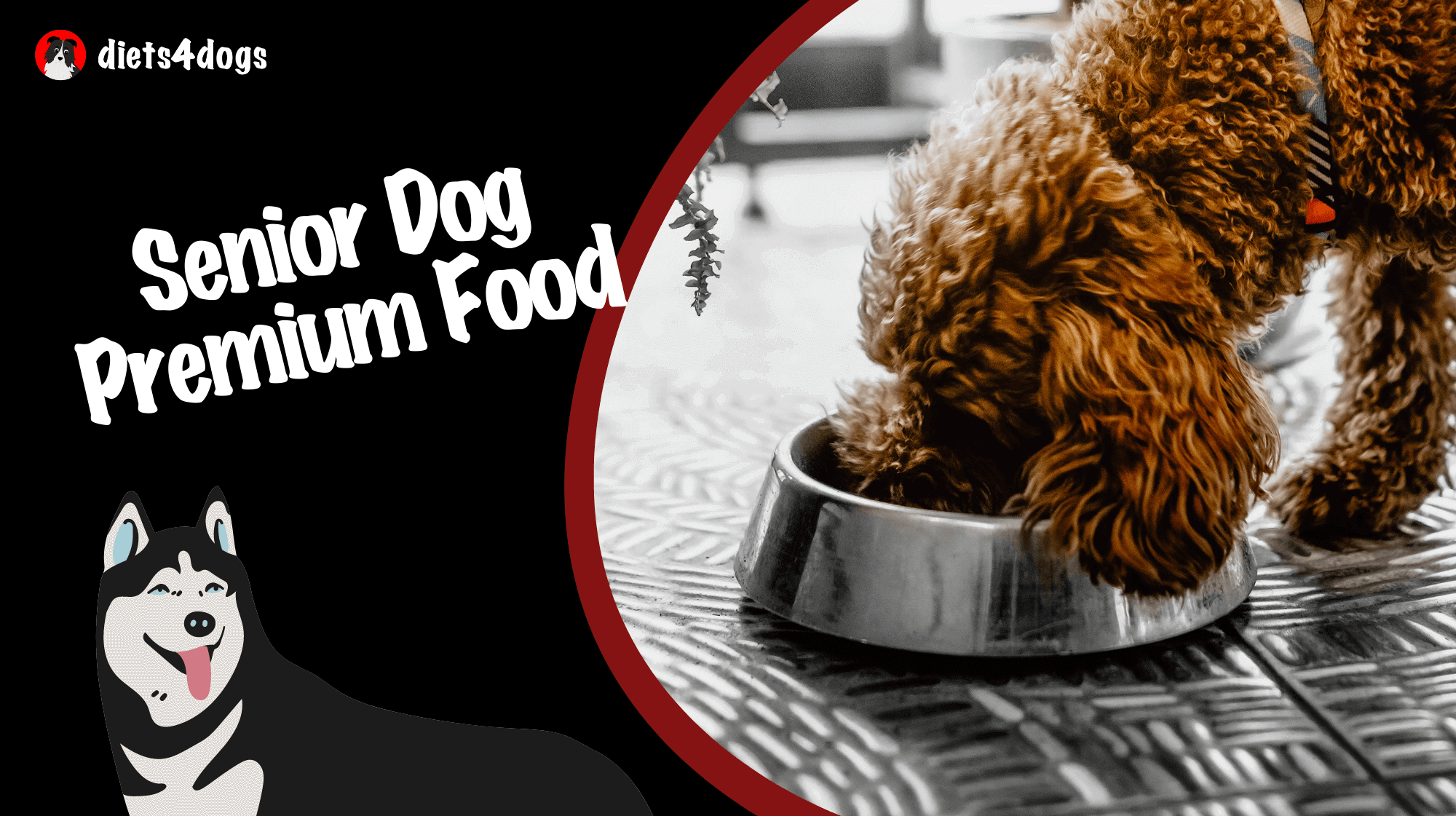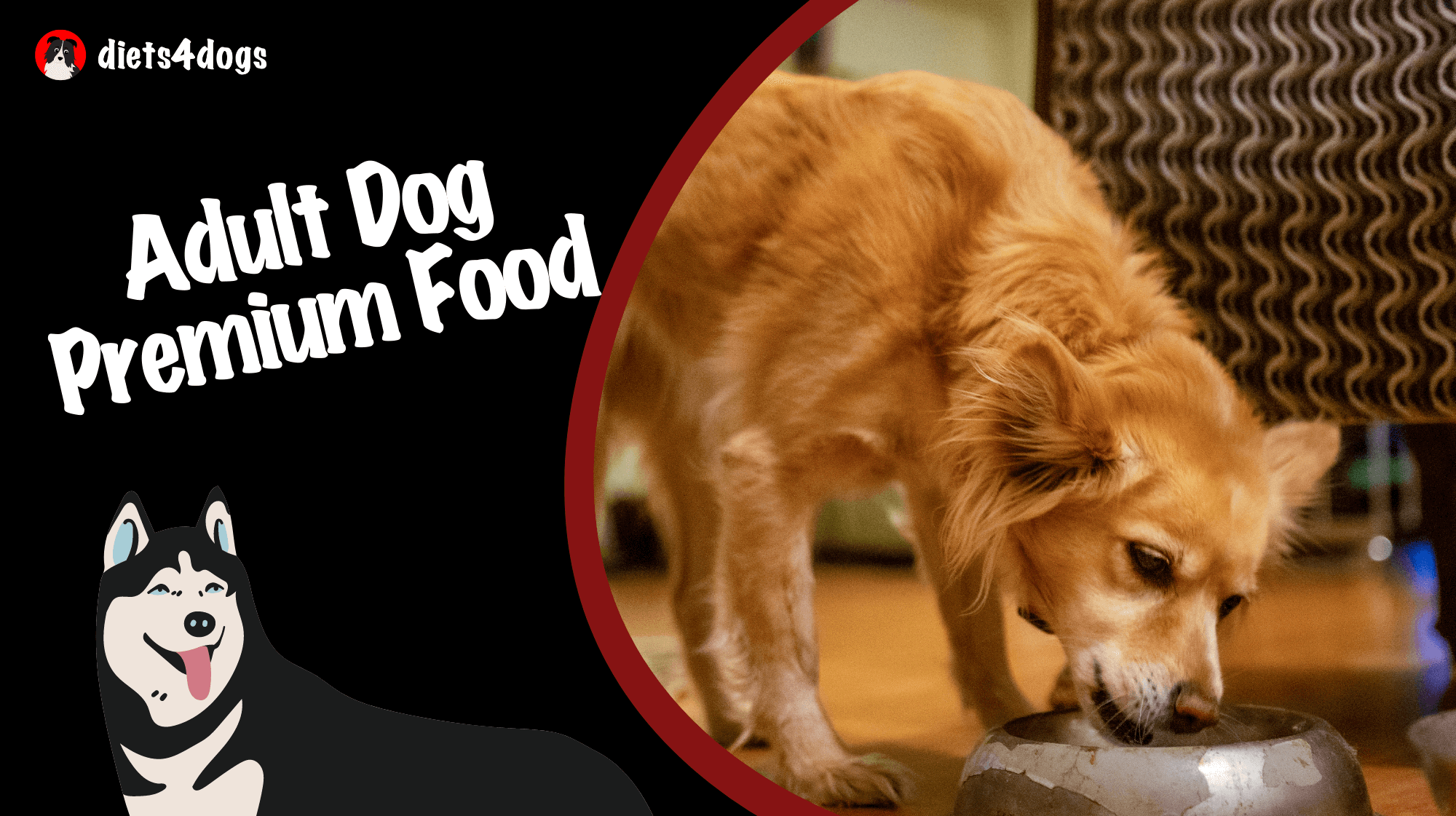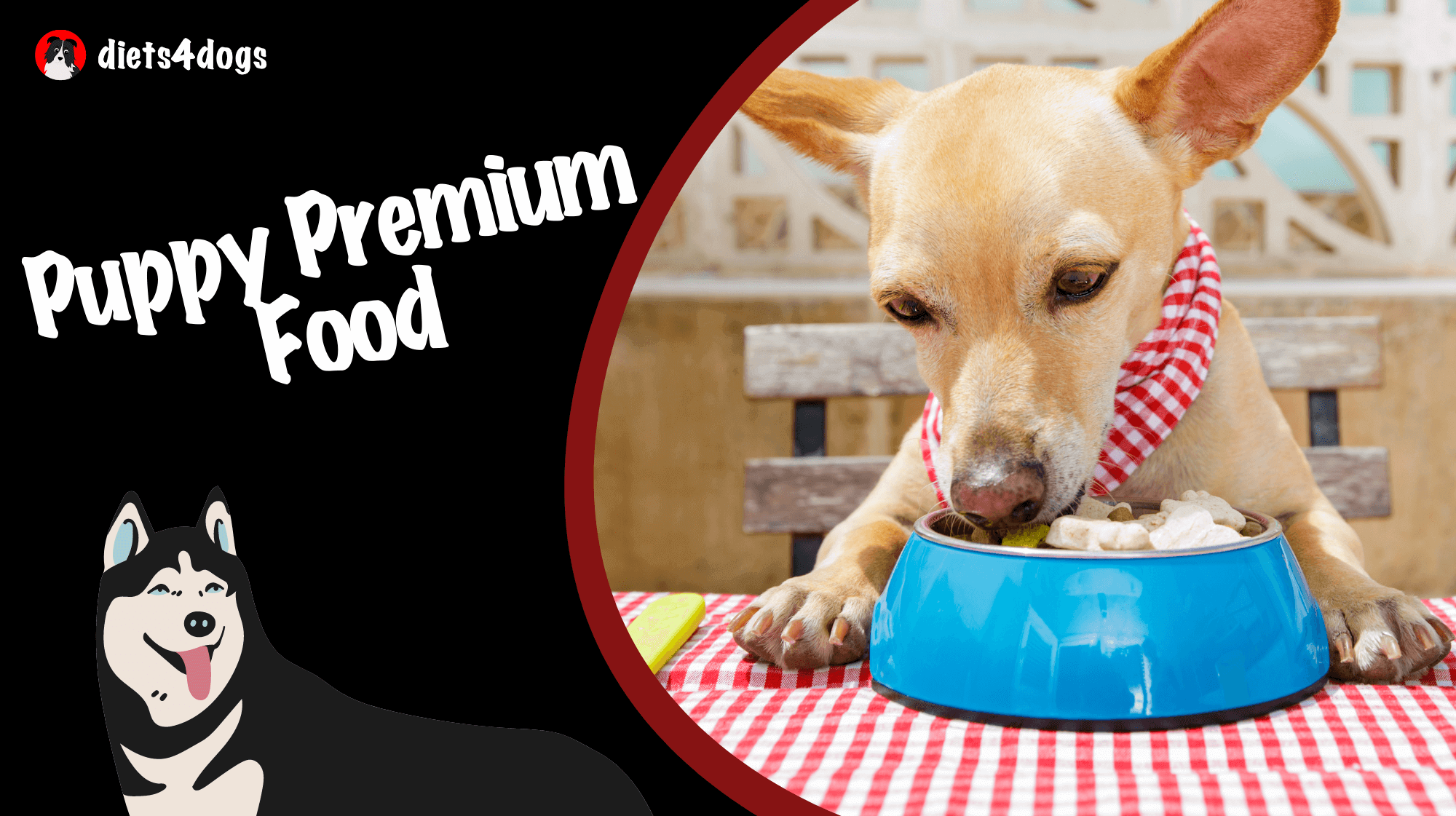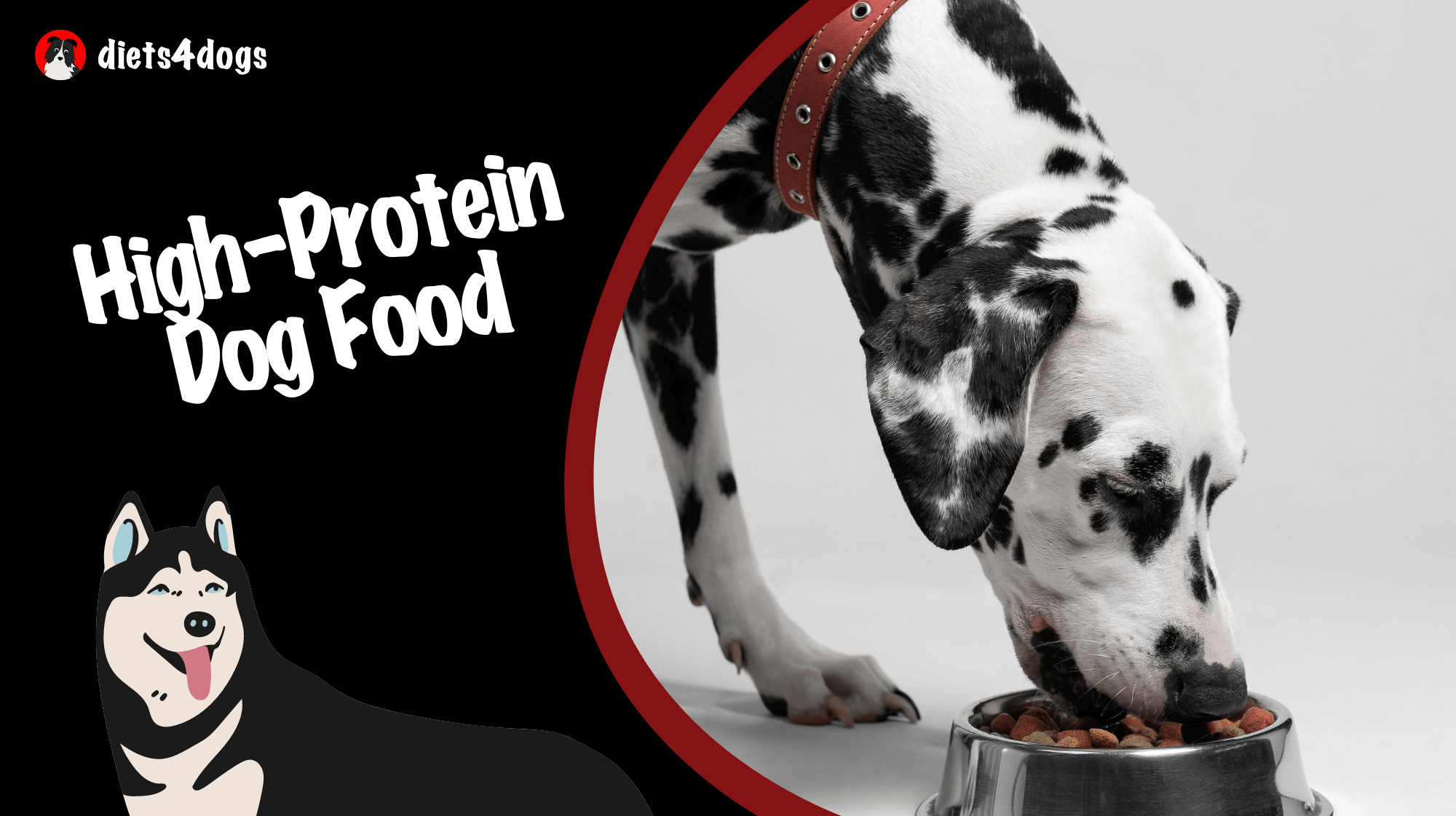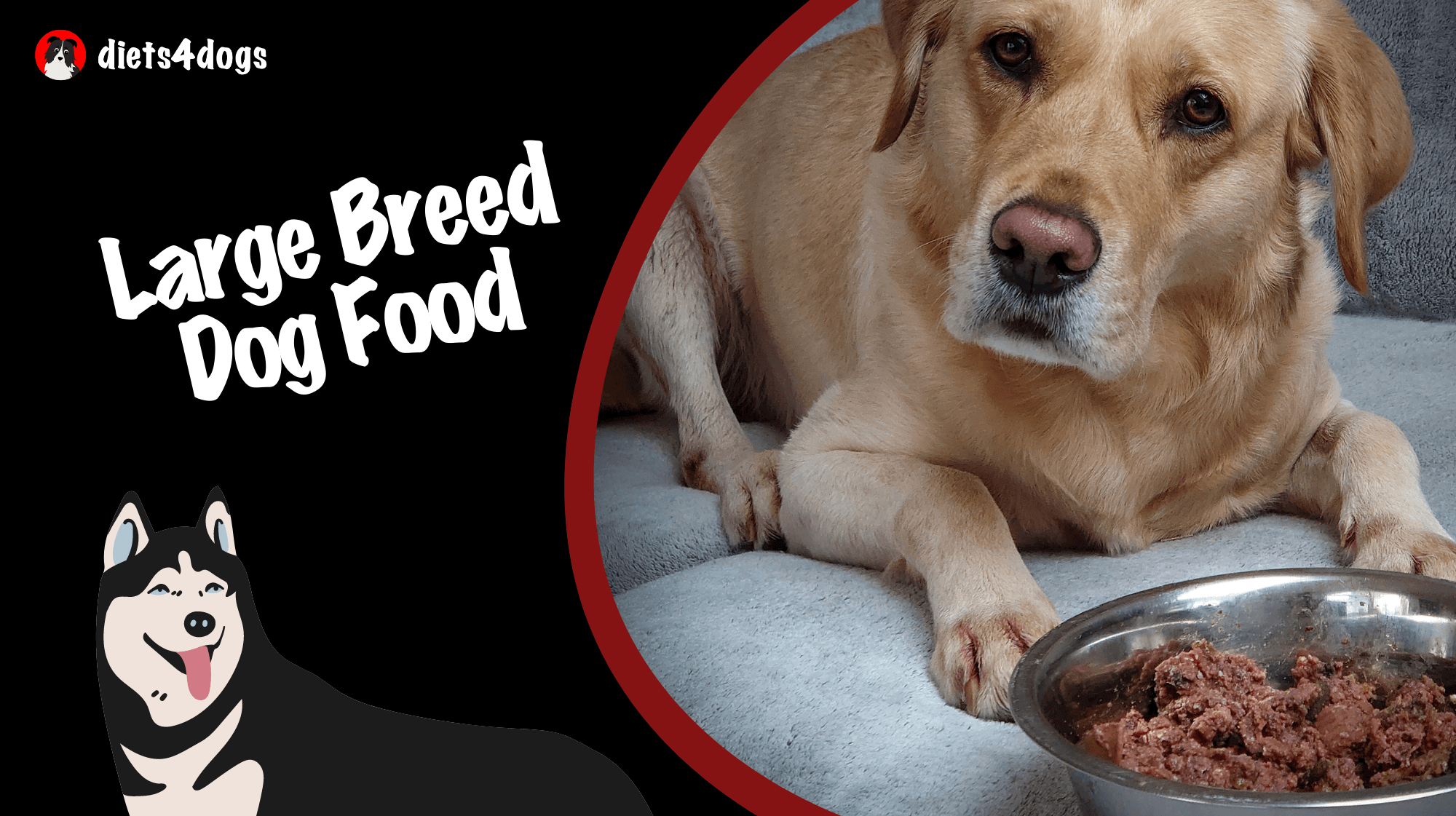Quality nutrition is a cornerstone of your dog’s health, and choosing the right dog food is a significant decision for any pet owner. The increasing popularity of premium dog food has seen pet parents become more discerning, opting for diets that are not only palatable but also nutritionally balanced and beneficial for overall health.
The vast landscape of premium dog food caters to various dietary needs, breeds, life stages, and health conditions. This guide provides a comprehensive overview of these options, helping you make an informed choice for your pet.
What is Premium Dog Food?
Premium dog food refers to high-quality pet food made with superior ingredients, formulated to cater to dogs’ specific dietary needs and preferences. These foods often include natural, organic, or human-grade ingredients and prioritize nutritional balance and overall health benefits.
Premium dog food options may also be tailored to a dog’s breed, size, and life stage or address special dietary needs, such as allergies, weight control, or joint health. By choosing premium dog food, pet owners aim to provide their dogs with the best possible nutrition for optimal health and well-being.
The Importance of Understanding Your Dog’s Nutritional Needs.
Grasping the individual nutritional needs of your dog is essential for maintaining their well-being and ensuring they receive a balanced, nourishing diet. Various factors, such as age, breed, size, activity level, and existing health conditions, influence your canine companion’s dietary necessities.
By consulting with your veterinarian, you can develop a personalized diet plan that caters to your pet’s unique requirements and lifestyle, ultimately promoting their long-term health and happiness.
The Role of Supplements in Premium Dog Food.
Premium dog food often includes added supplements to support your pet’s health and well-being. Some joint supplements found in premium dog foods include:
- Probiotics – Beneficial bacteria that support digestive health and a balanced gut microbiome.
- Prebiotics – Fibers that promote the growth of healthy gut bacteria.
- Antioxidants – Nutrients that help protect cells against damage from free radicals and support immune system function.
- Omega-3 and Omega-6 fatty acids – Essential fatty acids that support skin and coat health, reduce inflammation and promote overall health.
- Glucosamine and Chondroitin – Natural compounds that support joint health and mobility.
- Vitamins and Minerals – Essential nutrients that support various bodily functions, such as immune system function, metabolism, and bone health.
When choosing a premium dog food, look for one that includes these beneficial supplements to support your dog’s overall health and well-being.
The Environmental Impact of Premium Dog Food.
As a responsible pet owner, it’s essential to consider the environmental impact of the products you choose for your pet, including their food. Many premium dog food brands prioritize sustainability and ethical sourcing, using environmentally-friendly packaging, sourcing ingredients from certified sustainable sources, and minimizing their carbon footprint.
By choosing a premium dog food brand that shares your commitment to the environment, you can ensure that you’re positively impacting both your pet’s health and the planet.
The Importance of Transitioning to a New Dog Food.
Changing your dog’s diet to premium dog food is crucial to transition them slowly and gradually to avoid digestive upset. Introduce the new food gradually, starting with a small amount mixed with your dog’s diet. Over 7-10 days, gradually increase the amount of the new food while decreasing the amount of their old food. This will allow your dog’s digestive system to adjust to the new diet and minimize the risk of gastrointestinal issues.
The Benefits of Rotational Feeding.
Rotational feeding is a strategy that involves rotating between different types of premium dog foods, such as different protein sources, dry and wet food options, or even different brands. This approach can help prevent your dog from becoming bored with their food and ensure they receive various nutrients from different sources.
Rotational feeding can also help identify any food allergies or sensitivities your dog may have by introducing new ingredients one at a time. Consult with your veterinarian before implementing a rotational feeding plan to ensure it’s appropriate for your pet’s needs.
By following this comprehensive guide and considering the many premium dog food options available, you can make an informed decision that benefits your pet’s health, happiness, and well-being. Remember to consult with your veterinarian to determine the best diet plan for your pet and prioritize their unique nutritional needs.
Types of Premium Dog Food.
Different types of premium dog food cater to various dietary preferences and requirements.
- Grain-Free Dog Food – This premium dog food is designed for dogs with grain sensitivities or allergies. Grain-free dog food often uses alternative carbohydrate sources such as sweet potatoes, peas, or lentils. These formulas are believed to be easier to digest and may help dogs with gastrointestinal issues or skin irritations caused by grain allergies.
- Organic Dog Food – Made from high-quality, certified organic ingredients, this premium dog food is free from artificial preservatives, colors, and flavors. Organic dog food is also typically free of genetically modified organisms (GMOs) and growth hormones. This type of dog food is ideal for pet owners who prioritize environmentally friendly and ethically sourced products.
- Raw Dog Food – Also known as the “BARF” diet (biologically appropriate raw food), raw dog food aims to provide dogs with a diet that resembles what their wild ancestors would have eaten. Raw dog food often includes raw meat, bones, fruits, vegetables, and other natural ingredients. Proponents of this diet argue that it can lead to a shinier coat, healthier teeth, and improved digestion. However, handling raw dog food safely is essential to avoid contamination with harmful bacteria.
- High-Protein Dog Food – Active dogs and certain breeds may require additional protein to support their energy levels and muscle development. High-protein dog food typically contains more animal-based protein sources such as chicken, beef, fish, or lamb. This diet may also suit dogs recovering from surgery or illness, as protein is essential for tissue repair and overall health.
Tailored Nutrition: Breed-Specific and Life Stage-Specific Premium Dog Food.
One of the significant advantages of premium dog food is the ability to provide tailored nutrition, catering to the specific needs of dogs’ different breeds, sizes, and life stages.
- Breed-Specific Dog Food – Recognizing that various breeds have unique nutritional needs, breed-specific dog food ensures your pet receives the right nutrients for their specific requirements. For example, dog food formulated for breeds prone to joint issues may contain higher levels of glucosamine and chondroitin. In contrast, dog food for breeds with sensitive skin may focus on ingredients that promote skin and coat health. Choosing breed-specific dog food can help prevent potential health issues and support your pet’s overall well-being.
- Life Stage-Specific Dog Food – As dogs age, their nutritional needs change, making providing them with the appropriate diet at each stage essential. Life stage-specific dog food comes in various formulas, including:
- Puppy Premium Food – Formulated to support the rapid growth and development of puppies, this type of premium dog food contains higher levels of protein, fats, and essential nutrients to build strong muscles, bones, and immune systems.
- Adult Dog Premium Food – Designed for dogs in their prime, adult dog food offers balanced nutrition to maintain a healthy weight, support the immune system, and promote overall health and well-being.
- Senior Dog Premium Food – As dogs enter their golden years, their metabolism slows. They may require fewer calories and specific nutrients to support joint health, cognitive function and maintain muscle mass. Senior dog food is formulated with these considerations, providing a balanced diet for aging canines.
- Size-Specific Dog Food – Different size dogs have distinct nutritional requirements, and premium dog food addresses these needs through specially formulated diets for small and large breed dogs.
- Small Breed Dog Food – Small breed dogs often have faster metabolisms and may require more calories per pound than larger dogs. Small-breed dog food has higher calorie content and smaller kibble sizes to accommodate their unique requirements and smaller mouths.
- Large Breed Dog Food – Large breed dogs, on the other hand, have specific needs to support their larger frames, joint health, and a slower metabolism. Large-breed dog food often contains lower calorie density and the right balance of nutrients to prevent obesity and promote healthy joints and bones.
Tailored nutrition is a key aspect of premium dog food, allowing pet owners to cater to their dogs’ unique needs based on breed, life stage, and size. By providing your dog with a diet that meets their specific nutritional requirements, you can support their overall health and well-being throughout their lives.
Premium Dog Food Catering to Special Dietary Needs.
Dogs may have specific dietary needs like humans due to health issues, weight concerns, or other factors. Premium dog food offers various options to cater to these special requirements, ensuring your dog receives a balanced and appropriate diet.
- Hypoallergenic Dog Food – For dogs with allergies or sensitivities, hypoallergenic dog food typically features limited ingredients and a single protein source to minimize the chances of triggering an allergic reaction. This dog food can help alleviate itching, digestive issues, and skin irritations.
- Weight Control Dog Food – For dogs that need assistance in managing their weight, weight control dog food offers a balanced diet with reduced calories and fat content. This type of dog food often contains higher levels of fiber to help your dog feel full and satisfied while promoting healthy weight loss or maintenance.
- Premium Dog Food for Allergies – Similar to hypoallergenic dog food, premium dog food for allergies is designed to minimize the risk of allergic reactions in dogs. This may include using novel protein sources, such as venison or kangaroo, and grain-free options to accommodate dogs with food sensitivities.
- Premium Dog Food for Weight Gain – For underweight dogs or those that require additional calories due to high activity levels, premium dog food for weight gain is formulated with higher caloric content and increased protein and fat levels. This dog food can help your dog reach and maintain a healthy weight.
- Low-Fat Dog Food – Ideal for dogs that need to lose weight or manage conditions like pancreatitis, low-fat dog food offers a reduced fat content while still providing balanced nutrition. This dog food can help prevent obesity-related health issues and support overall health.
- Dog Food for Sensitive Stomachs – Some dogs may experience gastrointestinal issues or have a sensitive stomach, requiring a gentle, easy-to-digest diet. Dog food for sensitive stomachs is formulated with highly digestible ingredients, prebiotics, and probiotics to promote healthy digestion and minimize the risk of stomach upset.
- Premium Dog Food for Skin and Coat Health – A dog’s coat can indicate its overall health, with a dull, dry coat potentially signaling nutritional deficiencies or health issues. Premium dog food for skin and coat health is designed to maintain a shiny coat and healthy skin by providing essential nutrients such as omega-3 and omega-6 fatty acids, vitamins, and minerals.
Exploring Various Premium Dog Food Options.
Pet parents looking to provide diverse diets for their pets have a variety of premium dog food options to choose from. These can cater to specific dietary preferences, nutritional needs, and even convenience factors.
- Vegetarian Dog Food – For those considering a plant-based diet for their pets, premium vegetarian dog food offers a balanced and nutritionally complete alternative, utilizing plant-based protein sources and other essential nutrients to support overall health.
- Freeze-Dried Dog Food – This type of dog food maintains the nutritional integrity of fresh ingredients through a freeze-drying process that removes moisture while preserving nutrients. Freeze-dried dog food can be served as a complete meal or used as a topper to enhance the taste of your dog’s regular food.
- Wet vs. Dry Premium Dog Food – The choice between wet and dry premium dog food depends on your pet’s preference, dietary needs, and factors such as dental health. Wet dog food typically has a higher moisture content, which can benefit dogs with urinary issues or those who don’t drink enough water, while dry dog food can help maintain dental health through its crunchy texture.
- Limited Ingredient Dog Food – As discussed earlier, limited-ingredient dog food is designed to minimize the risk of food sensitivities by using minimal ingredients and a single protein source. This type of dog food can benefit dogs with allergies or other dietary restrictions.
- Dehydrated Dog Food – Offering a convenient and nutritious option, dehydrated dog food removes moisture from the ingredients, which helps preserve their nutritional value. Add water to rehydrate the food before serving, giving your dog a fresh and tasty meal.
- Canned Premium Dog Food – Available as a complete meal or a tasty treat to complement your dog’s regular diet, canned premium dog food is typically higher in moisture content. It can be more palatable for some dogs than dry dog food.
- Human-Grade Dog Food – Made with ingredients that meet the same standards as food for human consumption, human-grade dog food ensures your pet receives high-quality, safe, and nutritious food.
- All-Natural Dog Food – By choosing an all-natural premium dog food, you can ensure your pet is not consuming artificial additives, preservatives, or other potentially harmful substances. This type of dog food focuses on using wholesome, natural ingredients to support your dog’s overall health.
- Grain-Inclusive Dog Food – While grain-free dog food has gained popularity in recent years, grain-inclusive dog food provides the nutritional benefits of whole grains, such as fiber and essential nutrients. This type of dog food can be suitable for dogs without grain sensitivities and offers a balanced and complete diet.
As a pet parent, you can access many premium dog food options catering to your furry friend’s dietary requirements and preferences. By exploring these options, you can discover the ideal diet that promotes your pet’s overall health and well-being.
Premium Choices for Overall Health and Well-being.
Selecting the right premium dog food can cater to your pet’s dietary needs and improve their overall health and well-being. By focusing on various aspects of a dog’s health, these premium options can ensure that your dog receives comprehensive and balanced nutrition.
- Holistic Dog Food – This type of premium dog food takes a whole-dog approach to nutrition, considering all aspects of a dog’s health when formulating the food. Holistic dog food typically contains high-quality, natural ingredients, including various proteins, fruits, vegetables, and healthy fats to support your dog’s immune system, digestion, skin and coat, joints, and overall well-being.
- Dog Food for Dental Health – Oral health is an often-overlooked aspect of a dog’s overall health. Poor dental hygiene can lead to bad breath, gum disease, and other complications. Dog food for dental health is formulated to help maintain your dog’s oral health through various means, including specific ingredients that promote dental health, using a unique kibble shape and texture that encourages chewing, and even incorporating enzymes that help reduce plaque and tartar buildup.
- Dog Food for Joint Health – As dog’s age or face specific breed-related joint issues, they must be provided with the necessary nutrients to maintain healthy joints and mobility. Premium dog food for joint health often contains higher glucosamine, chondroitin, and omega-3 fatty acids, which can help support joint function and reduce inflammation.
- Dog Food for Cognitive Health – Maintaining cognitive function is essential for dogs, especially as they age. Some premium dog food options are formulated with specific nutrients, such as antioxidants, DHA, and other essential fatty acids, to support brain health and cognitive function.
- Dog Food for Immune System Health – A robust immune system is crucial for a dog’s overall health and well-being. Premium dog food for immune system health often includes a blend of antioxidants, vitamins, minerals, and probiotics to support a healthy immune response and maintain overall health.
Healthiest Dry Dog Food for Different Life Stages: Ensuring Optimal Nutrition for Your Pet.
Choosing the healthiest dry dog food for your canine companion can significantly impact their health and well-being. It is essential to consider their life stage, as food for puppies, adult dogs, and senior dogs have distinct nutritional requirements. Opting for premium pet food that caters to these specific needs can ensure a balanced and complete diet for your furry friend.
During the early life stages, food for puppies should be rich in essential nutrients to support rapid growth and development. The healthiest dry dog food for puppies often includes high-quality protein sources, vital for building strong muscles and bones, and essential vitamins and minerals for a robust immune system. Many premium pet food brands offer specially formulated puppy food to provide a strong foundation for growth and overall health.
As dogs mature, their dietary needs change to maintain a healthy weight, energy levels, and overall well-being. Adult dry dog food should offer balanced nutrition, high-quality protein sources, healthy fats, and essential vitamins and minerals. Some premium pet food brands even offer subscription dog food services, allowing pet owners to receive regular deliveries of their chosen products, ensuring a consistent supply of nutritious meals for their pets.
Performance pet food can support active or working dogs’ increased energy requirements and muscle development. These dry dog food options typically contain higher protein and fat levels, fueling high-performance activities.
Senior dogs require special attention to their dietary needs, as their metabolism slows and specific nutrients become more critical for maintaining joint health, cognitive function, and overall well-being. Premium pet food brands often offer healthy start packs or senior dog food formulations designed to cater to the unique needs of aging canines, ensuring they receive the right balance of nutrients to support their golden years.
By selecting the healthiest dry dog food tailored to your dog’s life stage and specific needs, you can provide your pet with the optimal nutrition they need to thrive.
Frequently Asked Questions.
Premium dog food is characterized by its high-quality ingredients, careful formulation, and focus on catering to specific dietary needs and dogs’ preferences. These foods often include natural, organic, or human-grade ingredients and avoid artificial additives, preservatives, and other potentially harmful substances. Premium dog food options can be tailored to a dog’s breed, size, and life stage or address special dietary needs, ensuring optimal nutrition and overall health benefits.
2. What is the number 1 healthiest dog food?
Identifying the single healthiest dog food is challenging, as the best option varies depending on each dog’s unique nutritional needs and preferences. Age, breed, size, activity level, and health conditions impact a dog’s dietary requirements. Consult with your veterinarian to determine the most suitable and healthiest dog food option for your pet.
Premium dog foods are generally better than lower-quality options due to their superior ingredients, nutritional balance, and focus on addressing specific dietary needs. By choosing premium dog food, pet owners aim to provide their dogs with the best possible nutrition for optimal health and well-being. However, it’s essential to consult with a veterinarian to determine the most appropriate diet for your pet’s unique needs.
The term “premium dog” typically refers to a dog that belongs to a specific breed, has a distinguished pedigree or exhibits exceptional qualities, such as physical appearance, intelligence, or temperament. It may also describe a dog that has received high-quality care, including a nutritious diet, proper grooming, and regular veterinary checkups, ensuring optimal health and well-being.
Some popular premium dog food brands include Orijen, Blue Buffalo, Wellness, Merrick, Canidae, Royal Canin, and Hill’s Science Diet. These brands are known for using high-quality ingredients, offering tailored nutrition options, and prioritizing pets’ overall health and well-being. It’s essential to consult with your veterinarian to determine the most suitable premium dog food brand for your pet’s specific needs and preferences.
In Summary: The Benefits of Premium Dog Food for Your Pet’s Health and Happiness.
Opting for premium dog food ensures you provide your pet with the highest quality nutrition. Although the initial cost might be higher, the long-term benefits, such as improved overall health, fewer health problems, and potentially lower veterinary costs, make it a worthwhile investment in your pet’s well-being and happiness.
When considering a change in your dog’s diet or if you have concerns about their nutritional needs, it’s essential to consult with a veterinarian or pet nutrition expert. This comprehensive guide serves as a starting point, but it’s important to remember that every dog is unique and may have specific requirements or dietary needs not covered here. By staying informed and prioritizing your pet’s nutrition, you can contribute to their overall health and happiness, ensuring they enjoy a long and fulfilling life by your side.


